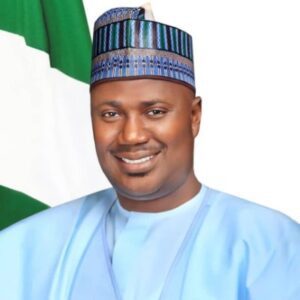


Foods prices in Nigeria surge by over 130% – NBS
The prices of rice, garri, beans, and yam surged astronomically by over 130 per cent in April 2024 on a year-on-year basis, worsening Nigeria’s economic misery.
The National Bureau of Statistics disclosed this in its selected food prices watch for April, which was recently released on its website.
According to the report, the price of a one-kilogram bag of rice increased by 155.93 per cent to N1, 399.34 in April 2024 from N546.76 recorded in April 2023.
Still, on a month-on-month basis, the report said the price rose by 3.47 per cent from N1, 340.74 in March.
Accordingly, the average price of 1kg of garri increased by 134.98 per cent year-on-year to N851.81 in April from N362.50 in April last year.
On a month-on-month basis, the average price of this item increased by 13.59 per cent from N749.89 in March 2024.
Similarly, the average price of 1kg of tomato rose by 131.58 per cent yearly to N1, 123.41 in April 2024 from N485.10 in April 2023.
Also, the report said on a month-on-month basis, rice increased by 17.06 per cent from N959.68 in March 2024.
Furthermore, the average price of 1kg brown beans rose by 125.43 per cent on a year-on-year basis to N1, 387.90 in April 2024 from N615.67 in April 2023. Similarly, there was a monthly increase of 12.44 per cent.
Also, the average price of 1kg of yam tuber increased by 154.19 per cent on a year-on-year basis to N1,130.37 in April 2024 from N444.69 in April 2023.
On a month-on-month basis, it increased by 5.76 per cent from N 1, 068.78 in March 2024 to N 1,130.37 in April 2024.
The development comes amid the continued surge in Nigeria’s headline and food inflation which stood at 33.69 per cent and 40.53 per cent in April respectively.
Financial experts have blamed President Bola Ahmed Tinubu’s administration’s twin policies of fuel subsidy removal and naira devaluation for the rise in food prices.
The Central Bank of Nigeria, in its latest 295th Monetary Policy Committee meeting, raised the interest rate to 26.25 per cent. The apex bank governor, Olayemi Cardoso, said the MPC’s decision to raise the interest rate is to tame inflation.
Meanwhile, Muda Yusuf, the Director of the Centre for the Promotion of Private Enterprise, said the CBN’s previous rate hikes have not historically impacted the country’s inflation.



